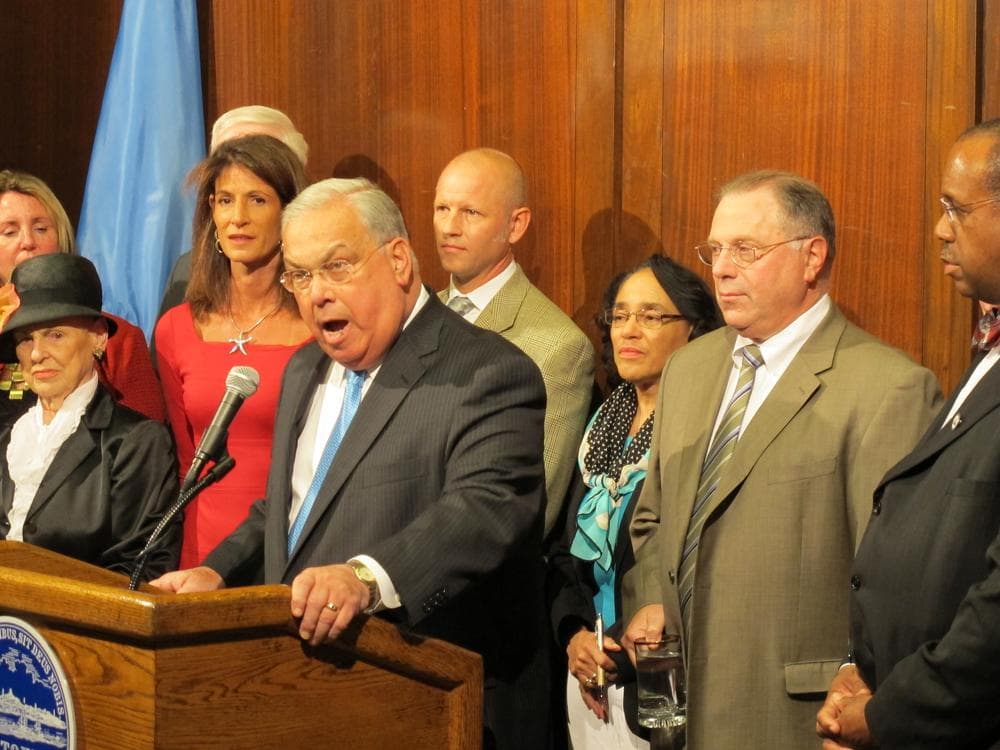Advertisement
Boston Teachers, City Reach Tentative Labor Deal
Resume
After more than two years of negotiations, the Boston Teachers Union and the city reached a tentative contract agreement early Wednesday.
Boston Public Schools and the union say this agreement will create a brand new system for the way teachers are placed, evaluated and earn pay raises. But it doesn't lengthen the school day. It also doesn’t eliminate seniority, but it does diminish it.
Superintendent Carol Johnson says now principals will have more control over hiring.
"In the past a principal had to interview the three most senior people and select from them," Johnson said. "This contract gives principals the flexibility to interview a number of candidates throughout the system and choose the best candidate of those who apply."
However, if the principal's chosen candidate doesn’t accept, there is still room for the seniority system to kick in and a teacher would be appointed without principal involvement.
"There’ll be flexibility on both sides, from the teacher’s standpoint and the principal’s standpoint," said Richard Stutman, president of the Boston Teachers Union. "At the end of the day the teacher is guaranteed a position, but at the end of the day it will be a more suitable position."
One of the final sticking points was the requirement that teachers be evaluated in part on their students' test scores, including MCAS. The sides agreed to use the state model, which also includes engaging families.
"We agreed on a proposal of performance evaluation that both of us could live with and both of us could work with in order to provide the best educational delivery of service to our members," Stutman said. "So you could call that a concession or you could call that an agreement."
The new contract also prevents new teachers who get poor evaluations from getting an automatic raise. And it’s tying salary increases to classroom needs. A teacher will have to take relevant professional development courses before getting a raise.
The main concession came from the city. There is no language in the new contract about lengthening the day. In July, Johnson dropped her proposal to make school two hours longer in some schools. Instead she is relying on existing language in the contract to add time to the school day at a smaller number of schools.
Overall, the reaction to the tentative agreement is positive.
"I think this is great news; it’s been a long time coming," said Kim Janey, of Massachusetts Advocates for Children. "We are excited to see the reforms that will benefit the children in the classroom."
But Sam Tyler, president of the Boston Municipal Research Bureau, is disappointed that the agreement didn't give principals more power.
"We would like a situation where the principals have full say over teachers in the school so the principal can be the education leader," Tyler said. They can then "develop a team that has the same philosophy, which means that there needs to be a better way to dismiss under-performing teachers. I think we have taken a step here but it really needed to go farther."
Johnson says the new system will help principals remove bad teachers from the classroom faster.
The contract also gives teachers a 12 percent pay increase over the six-year contact, retroactive. Two years of this contact have already passed, so they will see an immediate 3 percent raise, if the contract if approved by union members and the School Board.
This article was originally published on September 12, 2012.